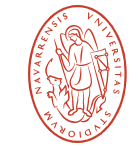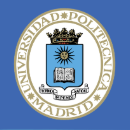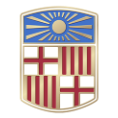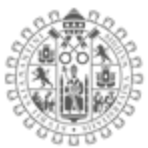Detailed introduction of the University of Valencia:
Introduction and Overview
Geographical Location: Located in Valencia, Spain.
Student Size: There are 50,437 students in 2025, of which international students account for about 14%, and the ratio of male to female students is 41:59.
History and Founding Time
In 1246, Pope Innocent IV proposed the establishment of "estudis generals", which was authorized by the papal bull of Valencia.
On April 30, 1499, the Valencian local judge passed the university decree, which can be regarded as the beginning of the school.
In 1501, Pope Alexander VI signed the approval bill, and a year later, Ferdinand II the Catholic issued the royal commission.
School Strength
Teaching Quality: As one of the oldest and largest universities in Spain, it offers undergraduate, master's and doctoral degree programs, covering various knowledge fields such as society, economy, law, experimental science, engineering, health science, educational science and humanities.
Faculty: It has 3256 1,706 teachers and researchers, 1,706 management and service staff, with an average of one teacher for every 13.9 students.
Research Strength: With 92 teaching and research departments, 17 research centers and colleges, it has strong research capabilities. Its science park has more than 80 start-ups and 6 research institutions, including an observatory.
Institutional Nature
Public university.
Educational Philosophy
Committed to providing comprehensive education, cultivating students' professional knowledge and comprehensive literacy, promoting academic research and innovation, promoting the dissemination and application of knowledge, and cultivating talents with responsibility and innovation for society.
Key laboratories and disciplines
Key disciplines:
Law: Ranked 176-200 in the THE 2025 ranking, its law major has a comprehensive curriculum and high teaching quality, providing students with a solid legal theory foundation and practical opportunities.
Education: Ranked 251-300 in the THE 2025 ranking, it focuses on combining educational theory with practice and cultivating professional talents in the field of education.
Psychology: Ranked 301-400 in THE 2025 ranking, the discipline has remarkable research and teaching achievements, and provides students with high-quality psychology education and research environment.
Life Sciences: Ranked 301-400 in THE 2025 ranking, covering multiple fields such as biological sciences and medicine, with profound academic accumulation and scientific research strength in biomedical research, botany, etc.
Key laboratories: There are many advanced scientific research laboratories such as the Desert Fertilization Research Center, the Cavaniyes School of Biodiversity and Biological Evolution, the School of Materials Science, the School of Molecular Sciences, and the School of Particle Physics.
Department Settings
The school consists of 18 schools and 19 interdisciplinary institutes, including the School of Medicine and Dentistry, the School of Philosophy and Education, the School of Psychology, the School of Geography and History, the School of Languages, the School of Physical Education, the School of Physical Therapy, the School of Nursing, the School of Primary School Teacher Training, the School of Law, the School of Economics, and the School of Social Sciences.
Ranking
2025 QS World University Rankings: 445th.
2025 THE World University Rankings: 501-600th.
Expenses
Tuition fees: Undergraduate studies at Spanish public universities are generally free of charge. Only a small registration fee of about 1,000-2,000 euros per year is required, which may vary for different majors. Tuition fees for master's and doctoral degrees vary depending on the major, and master's tuition fees are about 2,000-5,000 euros per year.
Living expenses: The living expenses in Valencia are relatively moderate, including accommodation, food, transportation, etc., which cost about 800-1000 euros per month.
Campus environment
Campus distribution: There are three campuses: Burjassot Campus, Blasco Ibañez Campus and Tarongers Campus. In addition, there are teaching sites in Ontinyent and Gandia.
Facilities and atmosphere: The campus facilities are complete, each campus has a library, and there is also a library in the historical building of Lanau, which has rich book resources and advanced information equipment. The school also has a botanical garden, etc., which provides students with a good learning and research environment. At the same time, the university has sports teams and high-level athletes who participate in various university leagues and competitions. The campus cultural activities are rich, creating a positive campus atmosphere.
-

University of Navarra
-

Autonomous University of Madrid
-

Polytechnic University of Catalonia
-

CEU University of San Pablo
-

Technical University of Madrid
-

University of Lleida
-

University of Barcelona
-

University of Oviedo
-

University of Valladolid
-

University of Salamanca
-

Mesoamerican University
-

Istmo University
-

Mariano Galvez University of Guatemala
-

Regional University of Guatemala
-

Galileo University
-

Francisco Marroquín University
-

Rafael Landívar University
-

University of the Valley of Guatemala
-

University of San Carlos of Guatemala
-

Technological Institute of Tlaxcala Plateau
-

Golfo University
-

Technological University of South Sonora
-

Technological University of Huejotzingo
-

Tizimín Institute of Technology
-

Chilpancingo Institute of Technology

